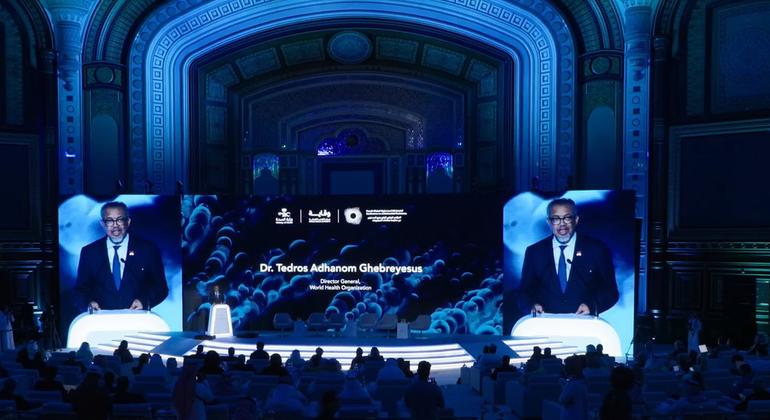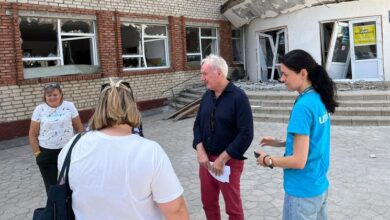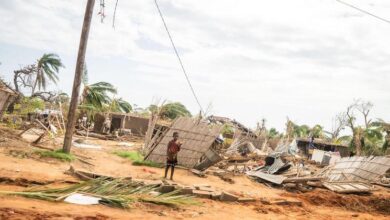Antibiotic resistance crisis ‘is happening’, WHO’s Tedros stressed at Jeddah summit

IN comment arrive ConferenceTedros Adhanom Ghebreyesus, Director-General of the United Nations World Health Organization (WHO), argues that what is being discussed is not simply the risk of people dying from superbug infections, “Now they are dying – 1.3 million people a year.”
Arriving in the Saudi Arabian coastal city of Jeddah after participating in the latest United Nations climate conference, COP29currently underway in Baku, Azerbaijan, Dr. Tedros said action on antibiotic resistance (AMR) “is as urgent as climate action.”
He said Political statement on AMR was agreed by the United Nations General Assembly last September, setting clear goals and the task now is to turn it into concrete action.
The WHO chief emphasized three priorities for implementing that Declaration – especially for low- and middle-income countries:
- Strengthen sustainable financial sources from both domestic and international sources;
- Strengthen research, development and innovation to address the “dry antibacterial pipeline”; And
- increase equitable access to quality antibiotics, while ensuring appropriate use.
“The irony of AMR is that it is driven by inappropriate use of antimicrobials, yet large numbers of people also die because they cannot access these drugs,” he said.
Emphasize that AMR “Here and now, but so are the solutions” Dr. Tedros urged stakeholders to seize the opportunity presented at the Jeddah Conference “to accelerate action on AMR, commit to stronger collaboration and protect the medicines that protect us.”
Antibiotic resistance occurs when bacteria, viruses, fungi, and parasites stop responding to antibiotics. Because drug resistance makes antibiotics and other antimicrobial treatments ineffective and makes treating infections more difficult or impossible, this can lead to superbugs. Bacteria cannot be stopped by the drugs that are the first line of treatment for the diseases these germs cause, increasing the risk of disease transmission. Serious illness, disability and death.

Fahad Abdulrahman Al Jalajel, Minister of Health of Saudi Arabia, delivered opening remarks at the AMR Conference in Jeddah.
‘Precious gift’ of modern medicine
Saudi Arabia’s Minister of Health Fahad Al-Jalajel warned conference participants that AMR “profoundly affects every aspect of life” and poses a direct threat to public health, stability, and safety. economic stability and global security.
This challenge knows no borders and affects all ages and groups,” he said.
Mr. Al-Jalajel said all states participated in the ministerial meeting “recognizing the magnitude of this challenge and the urgent need to take new measures to tackle AMR.”
The ‘Jeddah Declaration’ is currently being negotiated as the Conference’s outcome document, which includes key Saudi initiatives, such as establishing a global scientific committee to support antibiotic resistance biotech, establishing a ‘biotech bridge’ to support research and development, alongside a proposed knowledge hub to raise public awareness of AMR.
Mr. Al-Jalajel emphasized that, at this stage, the draft declaration serves the purpose of the Conference’s theme of ‘from declaration to implementation’., and implement the agreements reached in the political declaration of the General Assembly.
“Without effective antibiotics, we risk losing the achievements of modern medicine. We owe it to future generations to preserve this precious gift.” he said.

A scientist in Venezuela investigates antibiotic resistance (AMR), considered one of the top 10 global public health threats, which occurs when viruses mutate over time and no longer respond to medicine.
AMR transcends health
Dr. Hanan Al Balkhy, WHO Regional Director for the Eastern Mediterranean, said AMR is not an issue only mentioned in the third Sustainable Development Goal (SDG 3) related to health, rather, the AMR agenda is on at least 11 of the 17 global goal – from food production to equity.
This is why multidisciplinary dialogues like those taking place in Jeddah are so important, she said, “to draw the attention of stakeholders implementing other SDGs that, by the way, AMR should not be forgotten on your agenda.”
Talk to UN NewsDr. Al Balkhy said that as a Saudi citizen, she is very proud that the Jeddah Declaration and the commitments that will be adopted on Saturday at the conclusion of the conference “come from my homeland, where I grew up and where I worked. my studies.”
The Jeddah Conference is about partnerships, sharing experiences and understanding better ways of communication, she said, adding that bending the curve, even slightly, on AMR “will be a great achievement.”

Dr. Hanan Balkhy, WHO Regional Director for the Eastern Mediterranean, in an interview with UN News at the 4th Ministerial Conference on Antimicrobial Resistance (AMR).
Difficult even in peacetime
Dr Al Balkhy said the effort to tackle AMR is one “The agenda is heavy in peace and even heavier in conflict” because people lack the proper hygiene and medical tools to keep themselves safe and avoid creating a breeding ground for antibiotic resistance.
As conflict rages in the region she serves, the WHO Regional Director said she will remain “a strong voice in complying with international law in not attacking health care facilities.” health, which is considered a key investment in health access and does not target health workers who play a vital role in delivering appropriate health care.”
She said the WHO is trying to be “as innovative as possible.” to protect people in conflict areas from the spread of AMR, including by providing safe drinking water and minimizing open defecation challenges.
Bacteria are here to stay
Ms. Al Balkhy has spent much of her education and career fighting AMR and therefore understands the difficulty of addressing this global health challenge.
She said: “Bacteria have a purpose in life. They will survive. They survived before us and, unfortunately, they could survive millions of years after us. So the smart thing for us to do is to at least keep up with the evolution of these bacteria and make sure that we don’t harm ourselves with machinery and equipment to become resistant to these methods. This very important treatment.”

Mr. Thanawat Tiesin, Director of the FAO Animal Production and Veterinary Department and Chief Veterinarian, told UN News at the Fourth Global Ministerial Summit on AMR.
She said UN News that she hopes the international community can reach a point where it is no longer ravaged by war and can focus on “development, prosperity, advanced health care, [so that] We are not worried that these bacteria will set back health care advances by decades.”
‘Real change’ on the ground
Another conference attendee, Thanawat Tiensin, Assistant Director-General of the Food and Agriculture Organization of the United Nations (FAO), said his organization wants to ensure that countries, manufacturers, farmers, the private sector, academia and other stakeholders undertake their own initiatives to reduce demand. demand for antibiotics in agriculture.
He emphasized that through collective action, “More can be done to ensure better health for people and animals.”
said Mr. Tiensin, who is also the organization’s chief veterinarian UN News about several FAO initiatives that serve this purpose, including RENOFARM (Reduces the need for antibiotics on the farm).
Others he mentioned include on the farm (FAO International Antimicrobial Resistance Surveillance System) and the Global Farmers Field School Platform.
All of these initiatives serve as tools to build sustainable agri-food systems and transfer knowledge and best practices directly to those who can create create real change on the ground.
With about 70% of antibiotics used in livestock, aquaculture and crop production, Mr. Tiensin said: “If we want to control the problem of antibiotic resistance, we need to control it at the source. We need to change the way we produce food and by doing so we can ensure that we can feed 8 billion people today and 10 billion people by 2050.”




